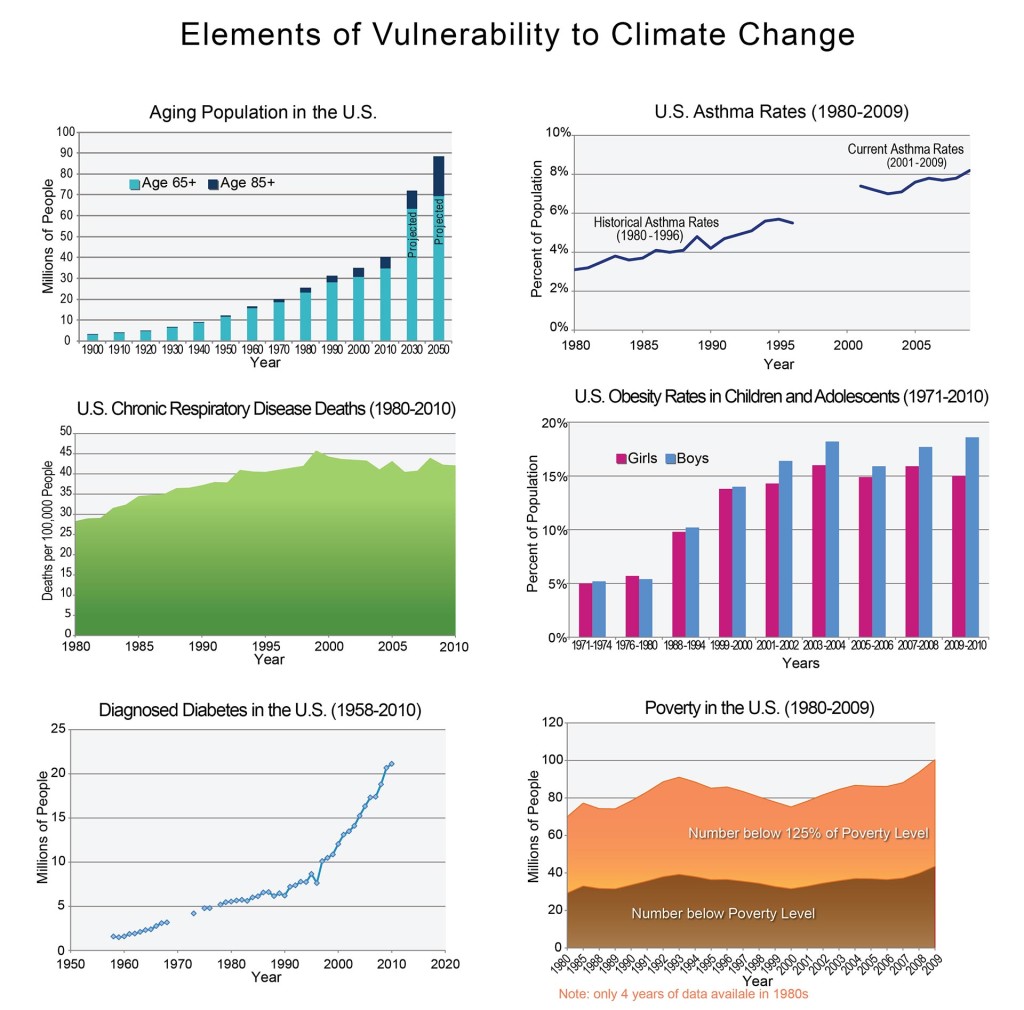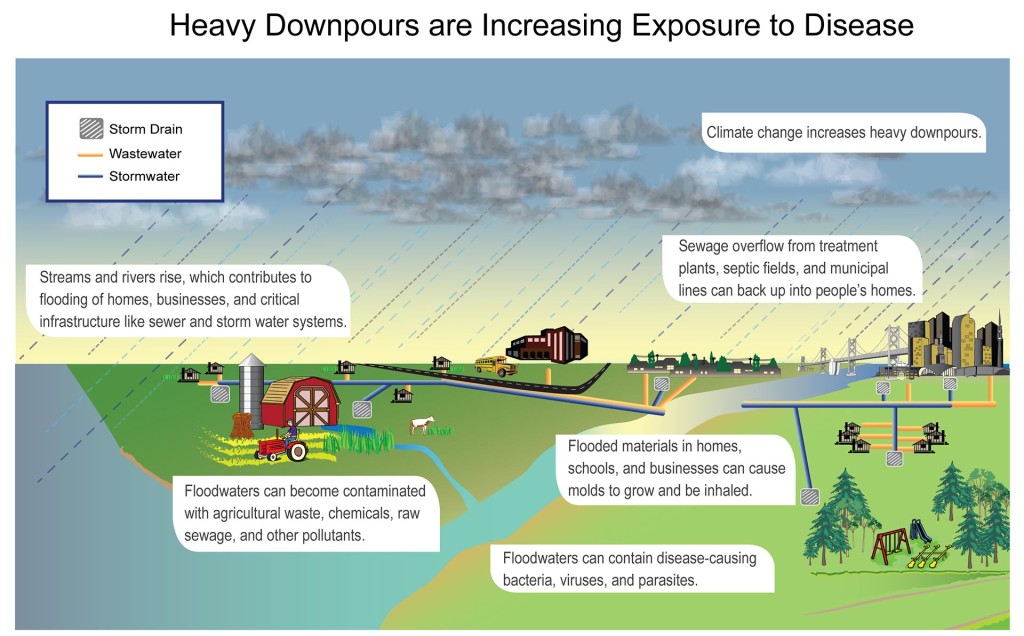Health Impacts of Climate Change Sneaking Up on Americans
A study by the Yale Project on Climate Change Communication on the public perceptions of climate change indicates that the majority of citizens grossly misunderstand the repercussions of climate change and its effects on health. The report shows analysis of results from a national survey conducted in October of 2014 and indicates that most US citizens have given little or no thought to the potential health effects of climate change.
Few Americans are aware of any current health consequences of global warming. When asked ‘In your view, what health problems related to global warming are Americans experiencing, if any?’ a majority either didn’t answer the question (43%) – which likely indicates they didn’t have an answer – or answered that they ‘don’t know’ (14%). Only one in four (27%) named at least one health problem related to global warming, and 10% answered, incorrectly, that there are no health problems associated with global warming.
The health effects of climate change are very prevalent and encompass a wide range of issues. According to the World Health Organization climate change affects both social and environmental determinants of health, including clean air, safe drinking water, sufficient food and secure shelter. The WHO predicts that:
Between 2030 and 2050, climate change is expected to cause approximately 250 000 additional deaths per year, from malnutrition, malaria, diarrhoea and heat stress.
The United States Environmental Protection Agency also states that weather and climate change play a significant role in people’s health. Warmer temperatures lead to heat waves which lead to most heat-related deaths and play a part in spreading diseases and increasing water and air pollutants. Increased frequency in extreme weather poses immediate and severe threats to people in dangerous areas. The consequences can be life-changing and efforts towards solving the issue are dependent on various factors.
The impacts of climate change on health will depend on many factors. These factors include the effectiveness of a community’s public health and safety systems to address or prepare for the risk and the behavior, age, gender, and economic status of individuals affected. Impacts will likely vary by region, the sensitivity of populations, the extent and length of exposure to climate change impacts, and society’s ability to adapt to change.

Graphic from from US National Climate Assessment
Of the consequences that will be seen as effects of climate change, the WHO predicts that extreme heat will contribute to deaths from cardiovascular and respiratory disease. Pollen and allergen levels will also increase in extreme heat which will trigger asthma.
An increase in natural disasters and variable rainfall patterns will also be seen. The WHO reports that:
Globally, the number of reported weather-related natural disasters has more than tripled since the 1960s. Every year, these disasters result in over 60 000 deaths, mainly in developing countries.
The WHO also reports that the increase in variable rainfall patterns will affect the cleanliness of water:
A lack of safe water can compromise hygiene and increase the risk of diarrhoeal disease, which kills almost 600 000 children aged under 5, every year. In extreme cases, water scarcity leads to drought and famine. By the 2090s, climate change is likely to widen the area affected by drought, double the frequency of extreme droughts and increase their average duration six-fold.

The EPA states that heat-related deaths are the most common among those related to climate change and will have an effect on both rural and urban areas:
Climate change could lead to even warmer temperatures in cities. This would increase the demand for electricity in the summer to run air conditioning, which in turn would increase air pollution and greenhouse gas emissions from power plants.

Graphic from USGCRP (2009)
In addition to water-related disasters, changes in temperature and precipitation will directly affect production levels, according to the EPA:
Rising temperatures and variable precipitation are likely to decrease the production of staple foods in many of the poorest regions – by up to 50% by 2020 in some African countries4. This will increase the prevalence of malnutrition and undernutrition, which currently cause 3.1 million deaths every year.
An assessment conducted by the WHO concluded that:
Climate change is expected to cause approximately 250 000 additional deaths per year between 2030 and 2050; 38 000 due to heat exposure in elderly people, 48 000 due to diarrhoea, 60 000 due to malaria, and 95 000 due to childhood undernutrition.
These deaths will also be attributed to an increase in food-born, animal-born, and water-born diseases, according to the EPA:
Higher air temperatures can increase cases of salmonella and other bacteria-related food poisoning because bacteria grow more rapidly in warm environments. These diseases can cause gastrointestinal distress and, in severe cases, death.
The list of health-related consequences of climate change goes on and on, increasing with the temperature. Direct health effects will continue to increase as Earth reacts to the habits of humanity. Unfortunately, most Americans express little concern over this matter.
The recent study on public perceptions of climate change brought to light the severity of unawareness within the citizens of today. According to the Yale study,
While more Americans support rather than oppose funding increases for government agencies to protect the public from health problems related to global warming, the largest group of Americans – approximately three in ten – has no opinion on this matter.